'It's coming back': Paul Canoville, Chelsea's first black player, on a career being racially abused and why it's never gone away
In 1982, Canoville was racially abused on his debut. 36 years on, he tells Samuel Lovett about a problem to which football has yet to find a solution

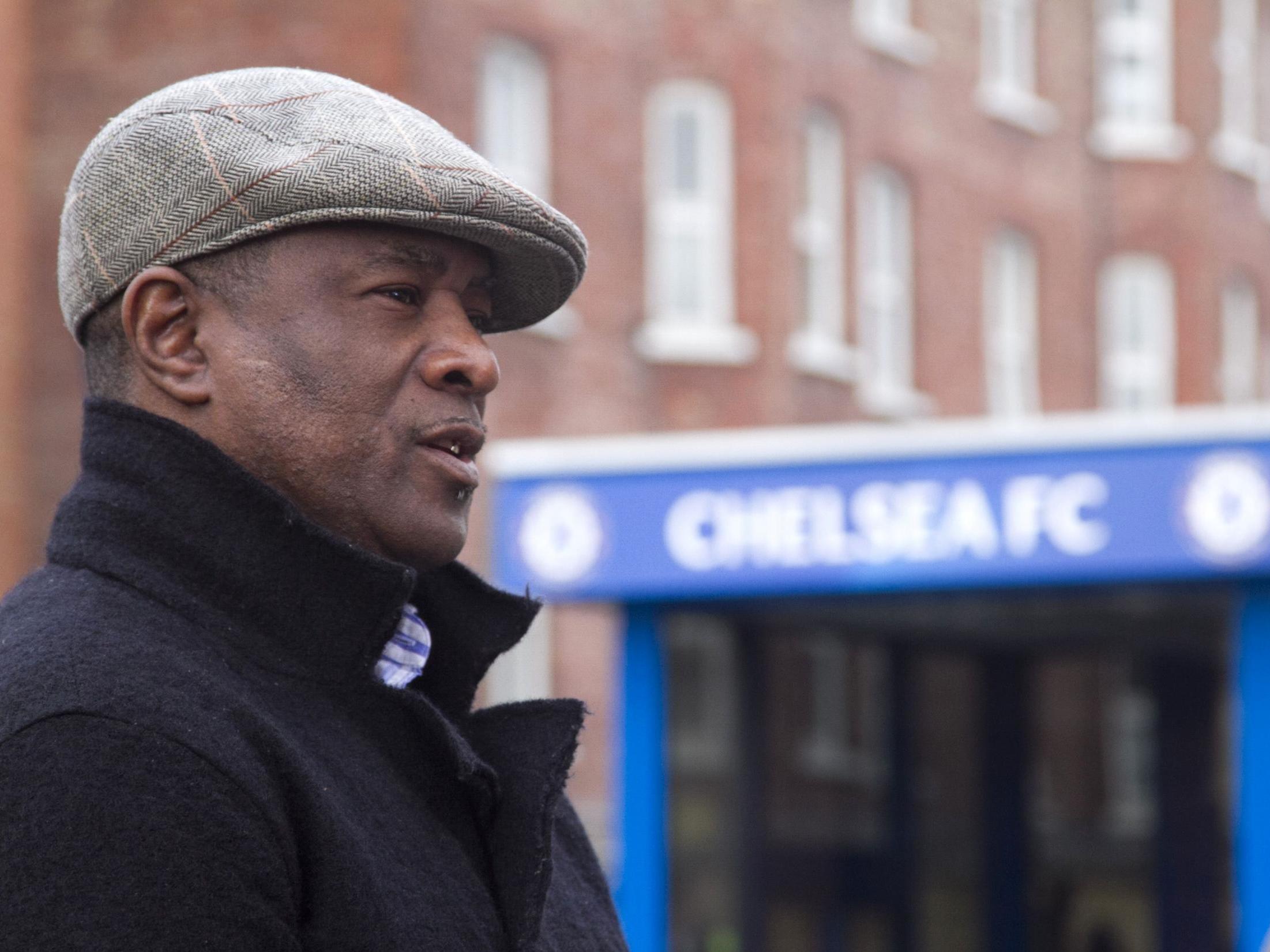
Your support helps us to tell the story
From reproductive rights to climate change to Big Tech, The Independent is on the ground when the story is developing. Whether it's investigating the financials of Elon Musk's pro-Trump PAC or producing our latest documentary, 'The A Word', which shines a light on the American women fighting for reproductive rights, we know how important it is to parse out the facts from the messaging.
At such a critical moment in US history, we need reporters on the ground. Your donation allows us to keep sending journalists to speak to both sides of the story.
The Independent is trusted by Americans across the entire political spectrum. And unlike many other quality news outlets, we choose not to lock Americans out of our reporting and analysis with paywalls. We believe quality journalism should be available to everyone, paid for by those who can afford it.
Your support makes all the difference.Paul Canoville has seen it before. He knows what it looks like. The same contorted faces, etched with disgust and repulsion. The same words, dripping with vitriol and unfathomable fury. The same anger, passed from one generation of fans to another – a blunt weapon with which to beat, insult, denigrate, demean and dehumanise those players at the receiving end of such rage. The same racism, over and over again.
It’s been more than 30 years since Canoville, Chelsea’s first black player, made his debut against a backdrop of racist chants and slurs from his own fans. “Sit down you black c***!”, “You f****** w** – f*** off!” The words cut through him like a blade as he made his way onto the turf at Selhurst Park, April 1982. Years of strife and toil, poverty, homelessness, four months in prison, racist abuse from all walks of life – Canoville had come through it all to realise the impossible dream, only to be once again singled out for the colour of his skin.
Such discrimination followed him throughout his time as a player – from his formative days in the dust and grime of west London’s streets, when young white boys would openly hurl abuse as he ran rings around them, to his years at Hillingdon Borough, when opposition right-backs would whisper racist-fuelled threats in his ear. Nor did the step up to professional football bring any relief. Still it came. With its roots buried deep in the sport, this racism continued to cast a long shadow over Canoville and others throughout the peak of their careers.
But look how little we’ve learned since. The truth of the matter is this: the same overt, unconcealed racism which marred the Chelsea man’s playing days has returned to debase the modern game. Raheem Sterling had yet to be born when Canoville made his debut, but he is the latest in a long line of black footballers to stand, listen and breathe in the racist words pouring forth from the stands. And he won’t be the last.
“It’s coming back, it’s coming back,” Canoville tells The Independent, just days before the events at Stamford Bridge over the weekend. “To be honest, I didn’t expect it like that but it’s creeping back into the game.”
He points to the north London derby earlier this month, when a banana skin was thrown at Arsenal’s Pierre-Emerick Aubameyang . “That’s not acceptable at all. I’m not expecting to see that from the days when I was playing, but I saw that. The likes of Viv [Anderson], Ian [Wright], John Barnes – we saw it, we got it. To see that again in 2018, nah it’s not right. It’s frightening. Why is it happening again?
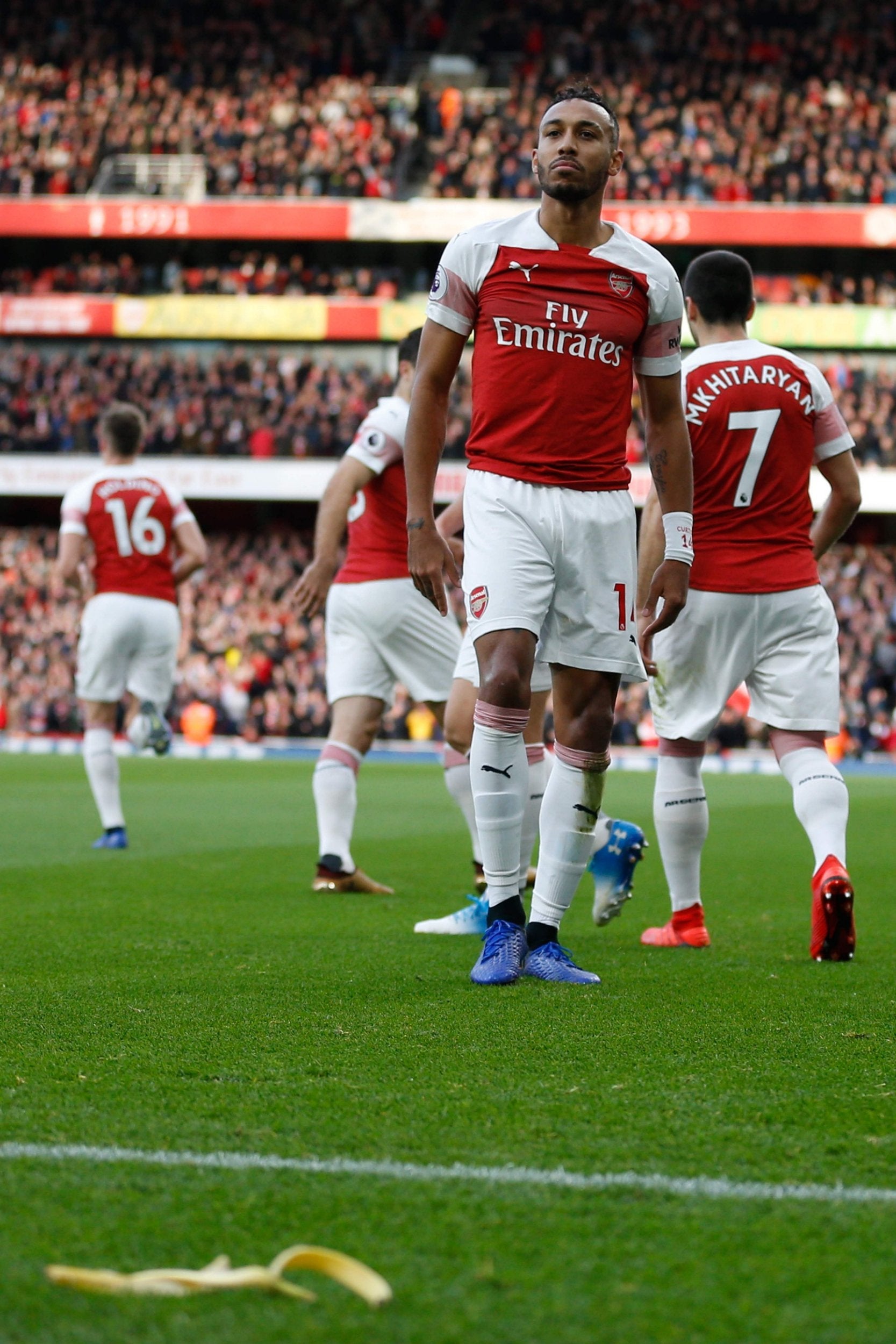
“We’re talking about hate crime coming back here and the energy from it. Is it the youths that are bringing it? Is it the older adults bringing it back? We’ve got to look at this, we really do. Why do they want to bring it back? Is it because of Brexit? We don’t know. It gives the country a bad name – this is how I see it.
“I don’t think the associated football leagues do a lot. They don’t punish enough. I know we’ve got associations like ‘Kick It Out’ and ‘red card’ [Show Racism the Red Card]. But right now it shouldn’t be seen. We’ve been through enough. From 1980 we’re now in 2018. To be receiving that, with all the demonstrations [against racism], what we do out, and the events, it’s just not on. I can’t accept it, I don’t want to accept it. That’s why I see the FA, Uefa, they’ve got to do a lot more.”
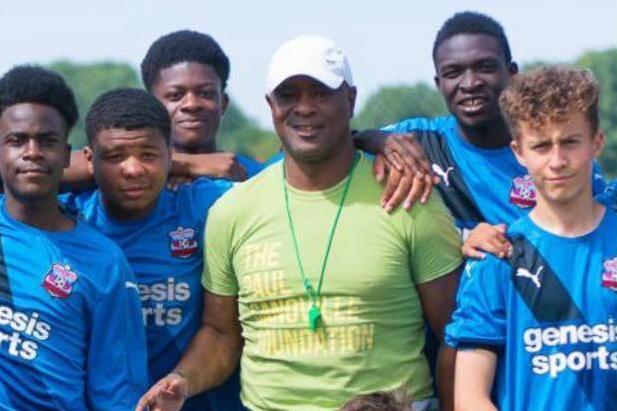
Talking from the front room of his Fulham flat, Canoville speaks with passion and urgency. There’s a quiet anger behind what he’s saying, a frustration and disbelief at what he sees unravelling in the modern game. But there’s reflection and introspection, too. A gentle giant, his voice fills the room while his booming laughter and animated anecdotes bring relief to a difficult 90 minutes of conversation.
Because when you’ve lived like Paul Canoville, it’s easy to overlook the small things. Those details which bring warmth and respite to a life beset by racist abuse, drug addiction, cancer, depression and the death of a child. Take, for example, the text he received from his mum two weeks ago. A simple apology but one that bridged more than 50 years of distance.
“When she saw the programme last Tuesday [ITV 4’s ‘Out of their Skin’], she text me to apologise. I couldn’t believe it. She said I’m so sorry, I didn’t know what you were going through at the time at Chelsea. This is because I was never open, I never told her what was going on or what I was receiving from the crowd. So she never knew until she saw the programme. And she apologised. I was emotional about that, I really was. It’s something that I could have shared with her but I didn’t.
“I was a bit taken aback by that because I didn’t have a close relationship until now. At that time, I couldn’t understand what she was going through and at the same what I was going through.”
For unlike Sterling, and the countless other players subject to racism in today’s game, the option to speak out simply wasn’t open to Canoville. Trapped by the confines of his own mind, and the toxic expectations of masculinity, this propagated a tension which, later in his life, would push him to the brink.
“I held a lot of tension,” he says. “Caribbean life means… should I say it like this: we’re never told to tell our problems outside of the house. ‘Your problem stays here. You don’t tell anyone nothing.’ That’s what it was for me. I couldn’t talk to anybody. You’d ask me if I was alright and I’d say ‘Yeah, I’m smiling’. But I wasn’t alright.
“It feels... not weak... but if you explain how you feel, you’re soft. And that’s probably why I didn’t do anything when I was receiving the racism at Chelsea. I didn’t complain. I thought if I complained they’re going to think I was a wimp. Or if I did make noise, it’d be like ‘Well here’s this boy, he can’t be accepted, he’s making aggro, got to get him out’. That’s the reason I kept my mouth shut. I don’t know why I went through that for three years and not say a thing.”
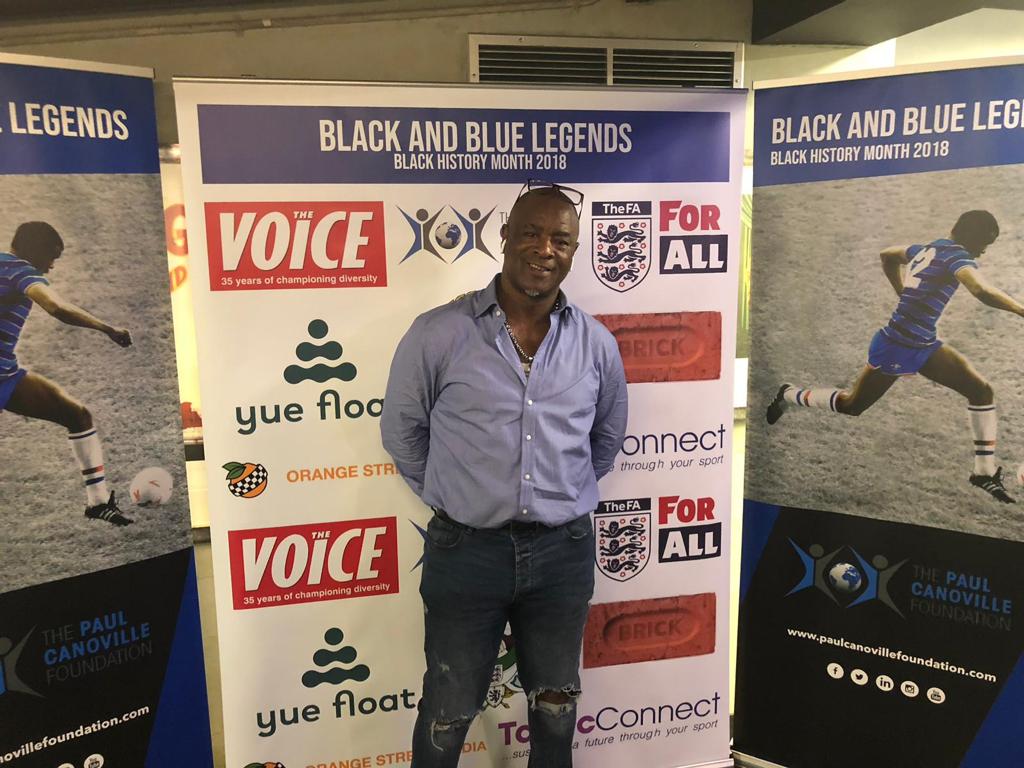
It was when he was forced into retirement at the age of 25 – at his peak – followed by the death of his last child that Canoville’s life took a violent downward turn. Years of pent-up anger, with no means to vent it to his family and friends, finally exploded into force, taking shape in the form of depression and drug addiction. But it was the act of speaking to a counsellor which saved him.
“It was a case of when I did retire I went downhill. Depression set in. I didn’t think it could hit me. It did. I was in denial. I was thinking ‘I’m alright, I’m alright’. I wasn’t alright. I was delving into drugs and it was taking over, and I was losing money, spending money. At times, I wanted to take my own life it was that bad.
“Everybody wants to help you. But it didn’t make sense people helping you. You’re the person who has to help yourself. I had to say: ‘You know what, enough is enough.’ And that situation came when I lost my last child. Died after 10 days. I wanted a hole in the ground to open up and take me instead of him. Give him a chance, take me instead. That really tore me apart. Then I had to go into rehab.
“It was embarrassing, I didn’t want people to know who I was but I had to get over that. I’ve had to come in here to help me, not you. And that’s what it did. It gave me a sense of realisation, it gave me strength, confidence – by talking to a counsellor it was the best thing I could have ever done.
“I couldn’t do anything until that counsellor talked to me. I was so able to open up. I couldn’t wait to see him every week and open up so much. He made me feel a lot lighter. And that’s what makes me able to talk now.”
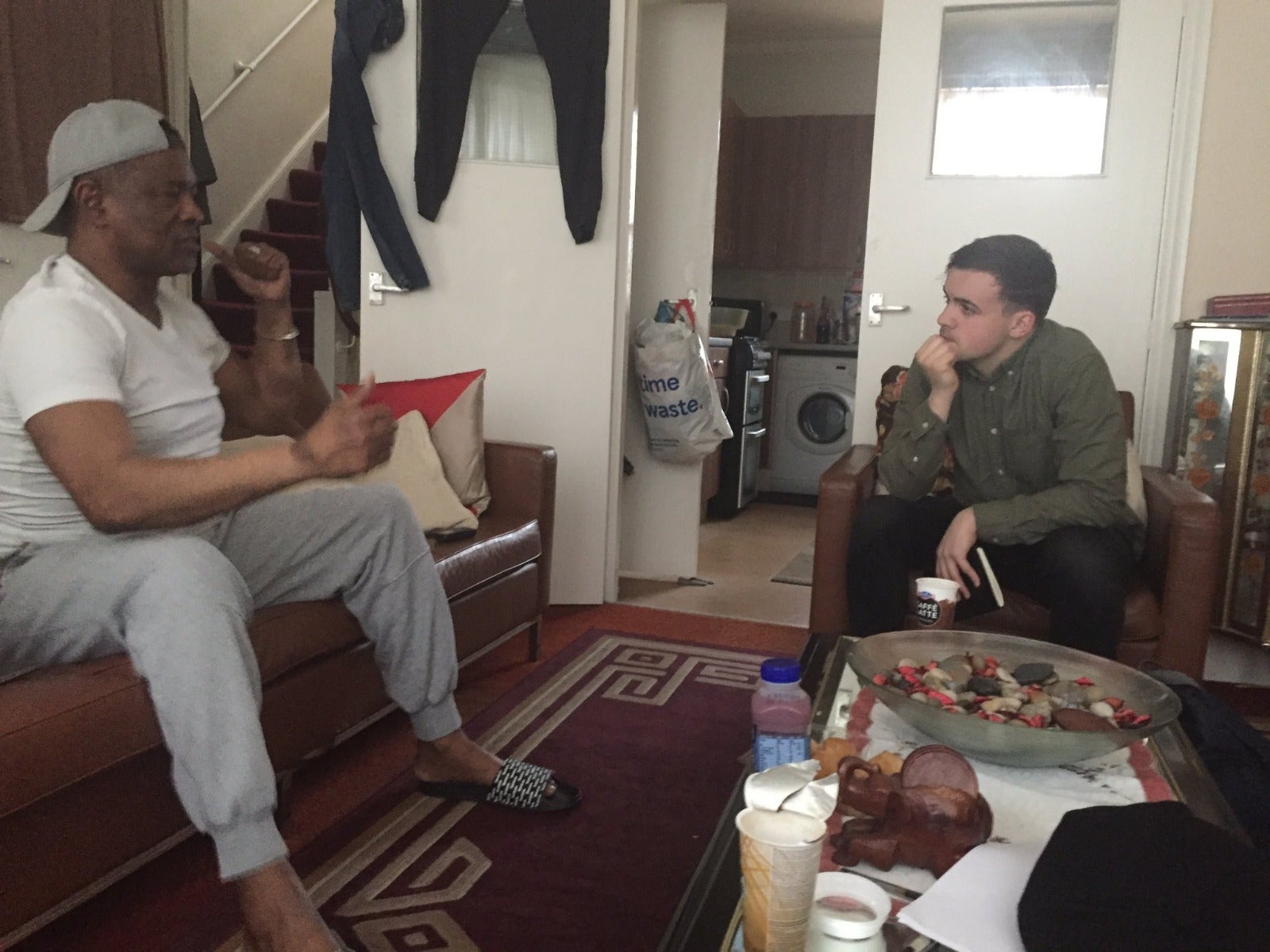
That hasn’t made the journey since any easier, though. While his early life was preoccupied fighting his inner demons, Canoville’s later years came to be defined by his struggles with cancer. On three separate occasions he was struck down: 1996, midway through rehab, 2002 and 2010.
For so long after his first diagnosis he was in denial, refusing to accept his fate. “The first time I nearly died because I couldn’t believe it, I couldn’t accept it. 96. I remember that distinctly because I’d not too long retired, I still played a bit of football. I was fit. Where’s cancer come from? It doesn’t fit.”
It took a run-in with death to finally wake him up to the seriousness of the situation.“I got this cold. For two weeks it wouldn’t leave. It just would not leave until I woke up one morning and I was paralysed. All I could move was my neck, couldn’t move anything else. I said to my partner at the time ‘I swear to god something is wrong.’ We called an ambulance… I had to be driven there, I’m going in and out [of consciousness]. They had to keep me awake. I reached the hospital in the nick of time, the nick of time. I think after that I took it seriously this cancer.”
That Canoville has come through all this and is now dedicating his life to improving society bears testament to the man he’s become. Through the Paul Canoville Foundation, which was set up in 2015 and is in the process of securing official support from Chelsea, the former winger is striving to make a difference in the lives of young, deprived children.
“Enough of us when we were youngsters used to get knock-backs, you never knew what to do about them,” he says. “And I had a million knock-backs and I kept picking myself up, you call it resilience. I think what I contend to do is motivate and inspire these kids that they can believe in themselves.
“We do need a lot more mentors, especially black mentors – there’s not enough of us and I’d like to get those other foundations together that are doing work with the kids but not doing enough. I think we can drag in more of the players, today’s players.
“What’s going on in the roads with these young black guys – the foundation for me will motivate and inspire. Football is important for the youngsters. It helps. But my background, I can give a little more – I can share where I’ve been as a youngster growing up, I know how it is. They can relate with what I’ve been through – and that’s how I’ve been portraying it and why I get on with them.”
It seems fitting that, at 56, Canoville is now preparing to take his coach’s badges with Chelsea – more than 50 years after his childhood obsession with football first started. Stretch his life out like a timeline and his is one demarcated by episodes of piercing rage, bouts of anguish and cycles of crippling depression – but it’s this next chapter which holds the promise of something new. A meaning and purpose that wasn’t there before. The opportunity to make a difference. And even as he strives to pass on his wisdom to the next generation, that won’t stop him continuing to grow as a person. “I’ve lived life man, but still live life and still learning,” he says. “Still learning. Every day.”
Join our commenting forum
Join thought-provoking conversations, follow other Independent readers and see their replies
Comments